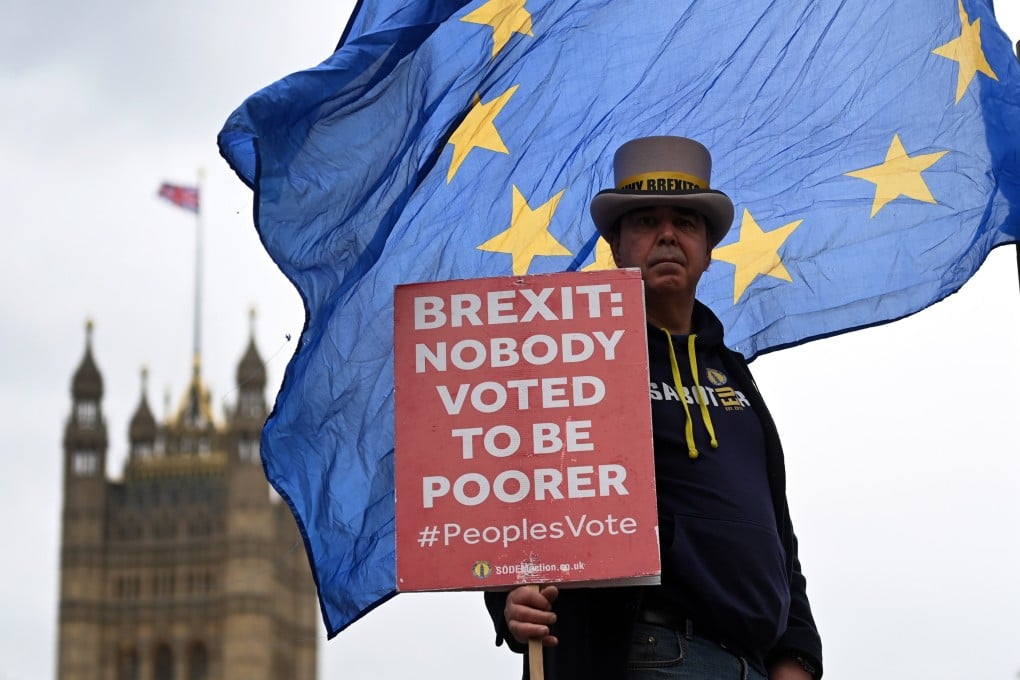Explainer | Why are the UK and EU heading toward another Brexit crisis?
- British is threatening to rewrite parts of the controversial Northern Ireland Protocol, a move which could trigger a trade war with its European neighbours
- The long-running dispute is heating up again, as Sinn Fein’s victory in recent local elections marks a major shift in the Northern Ireland’s political balance

Britain and the European Union are heading for another bust-up over Brexit, with the long-running dispute over the Northern Ireland Protocol coming to the boil again.
The UK threatened on Thursday to rewrite a key part of the Brexit accord.
Here’s how such a move could trigger a trade war between the two allies.
What’s the dispute about?
The future of Northern Ireland was the most controversial and difficult part of the original Brexit negotiations.
Both sides wanted to avoid putting customs checkpoints on the 499km (310-mile) border between the Republic and the North – once a major flashpoint for the sectarian violence that plagued the region for a generation.
The solution UK Prime Minister Boris Johnson voluntarily signed up to was to keep Northern Ireland in the EU’s single market for goods – at the cost of putting the customs border in the Irish Sea. That means goods travelling into the province from the rest of the UK are subject to checks.
Unionists argue that has driven a wedge between Northern Ireland and the rest of the UK and diverted trade flows to the south.